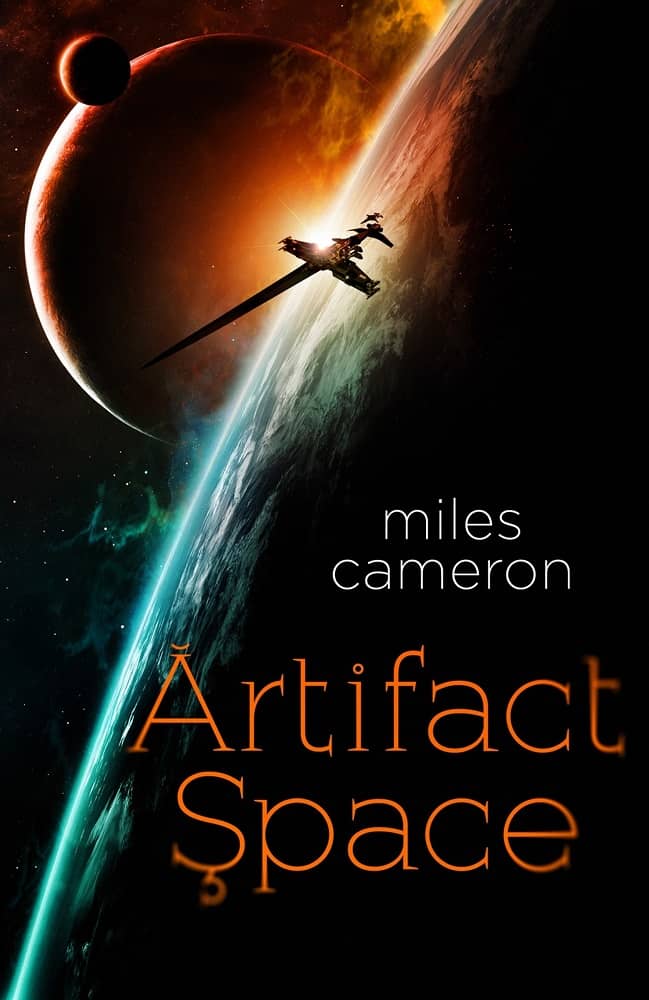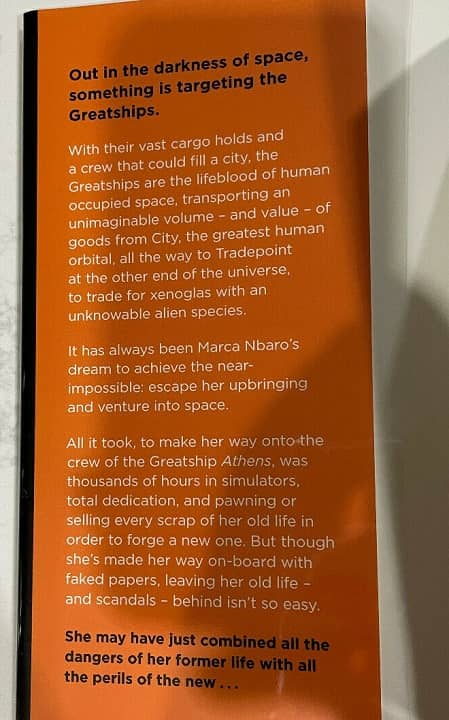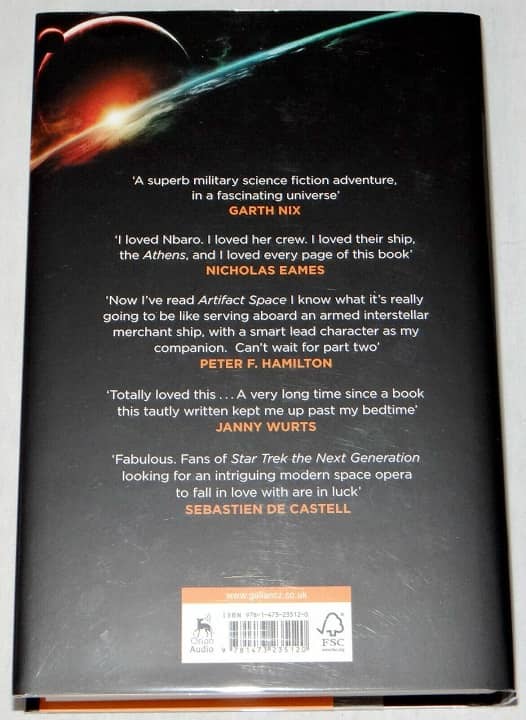When Venice Ruled the… Galaxy? Miles Cameron’s Artifact Space
Artifact Space by Miles Cameron (Gollancz, June 14, 2022)
Although I love to watch Sci-Fi shows & movies, I don’t tend to read a lot of Sci-fi, and never have; even though Dan Simmons’s Hyperion Cantos remains one of my favorite set of novels in any genre, and I have an incredible soft-spot for sword & planet pulp.
OTOH, good space opera often blurs the line between fantasy and Sci-Fi, or takes themes we see in historical fiction and contemporary society and plays with them, free from the constraints of, well, history. So, when one of your favorite his-fic/fantasy writers sets out to write a space opera, you need to take the plunge.
It’s a great plunge, indeed. I keep trying to come up with an analog and failing but here is the best I can come up with:
Patrick O’Brien’s Captain Aubrey novels + Horatio Hornblower + Top Gun in Star Trek’s Federation if the Federation had been founded by the Renaissance Venetians.
That’s a lot to unpack, right?
[Click the images for Artifact-sized versions.]
Artifact Space inside flap (UK edition)
But it is true. Taking his own experience as a naval aviator, Miles Cameron (pen name for Christian Cameron) plunges us into what it would feel like to truly live on a space-opera style great ship, not the clean, sleek, “luxury cruise liner” of the Enterprise, but the military functionality of the Galactica, or perhaps even more correctly, the 6 km-long vastness of an Imperial Star Destroyer. From details like the difference between dockside military formality and the reality of living together on tour, the danger of cracking an ankle on a raised doorframe while rushing to answer a battle-stations call, to young officers learning both the need to schmooze NCO’s and how best to do so (cake from the Officer’s Mess is a good start), Cameron takes lived experience and uses it to give shipboard life in his far future a sense of reality. And like O’Brien, the ship is a world and a character unto itself — easily done when the ship is a 6 km long, sword-shaped merchant-marine run by a Master hundreds of years old and an AI who has based it personality on a 17th century Venetian Doge.
The story is both an espionage thriller and a alien contact story, grafted to a classic tale of the talented outsider entering the military and trying to make a life for themselves. In this case, the hero is a heroine, Marca Nbaro, a new midshipper on the Greatship Athens – a massive space faring vessel run not by a benevolent government of neosocialists (ala Star Trek’s Federation) but by a consortium of business interests inspired by Renaissance Venetian mercantile culture, which has adopted certain socialistic traits (like a universal basic income) not out of altruism, but because it has realized that a *reasonably* contented society is a stable one and that is good business, because it also creates a social inertia that eliminates threats to the ruling patrician class. Essentially, this is a world run by enlightened self-interest and classicism, and it works, in part because of the sheer danger of deep space travel. “Insertion” (warp-jumping) is a real thing, but it can’t change the reality of distance – a cruise still takes *years* and this in itself creates a certain cultural status quo and a societal long-view that is rather different from our own society, but also rather neatly explains how neo-mercantilism works in Cameron’s future universe.
This long view also makes escape onto a greatship perfect for Marca, who is fleeing her own troubled past — once the ship is gone, it could take months, maybe years, for her sins to catch up with her — and the Top Gun or Officer and a Gentleman component carries over as she finds friends and purpose aboard the ship, slowly learning to look beyond the scarred armour she’s built around herself. Of course, as she learns her way around ship culture, we learn about her very complex and interesting world.
Where Artifact Space shines, however, is where Cameron the historian takes us on an adventure of…economics.
No, really!
Artifact Space back cover (UK edition)
You see, in the centuries of space travel, humanity has encountered only one space-faring alien species, nicknamed ‘Starfish’. A bizarre, utterly inhuman species who live in an ammonia-based environment and cannot really communicate with us, nor we them. But over time a sort of ‘silent trade’ system has arisen, much like how the gold trade in Africa worked: you put down what you offer and leave, I put an amount of gold (or in this case, a strange material the Starfish make, that is now central to human tech), and we keep adding our subtracting until one side takes their payment, ending the trade. This all happens at the very edge of human space, and it takes a year to get there, so we have time to explore our character, see how the sword-shaped Great Ships trade and negotiate deals along the way and so forth, revealing how the complexities of space travel creates a fascinating and complex colonial culture. We learn that to get to speed to “jump” also means that, in the vacuum of space, these vast, sword-shaped ships have to them spend days, even weeks, using thrusters in reverse to slow back down, all of which impacts the complexity of travel, the way artificial gravity is (and isn’t) used onboard, and how space combat itself works. Everything fits into the puzzle of world-building, and yet we are never bogged down with detail after detail.
All politics is economics and that plays very true here — there are rival factions in the hegemonic government, at least two rival governments who want access to the Starfish, and as we will slowly realize, complications on the Starfish side as well, which humanity has stumbled into. While learning about neo-mercantilism you can expect ship-boarding combat (with swords!), assassination attempts, deep-space fights and all the other hallmarks of space opera, all done very well and with well-established rules of how and why things work the way they do.
There is an overarching plot that will take us to the conclusion in part two, but much like good space opera, be that Star Trek, Babylon 5, or the Expanse, it is the world-building and the cast of characters that matters, far more than the plot itself. This is a world you want to visit, with a cast you want to meet, and Marca is someone whom you root for every step of the way. I smiled the entire time I was reading this novel, and I was sorry as I realized the end was drawing near.



You had me at Venetians in space!
Sold!